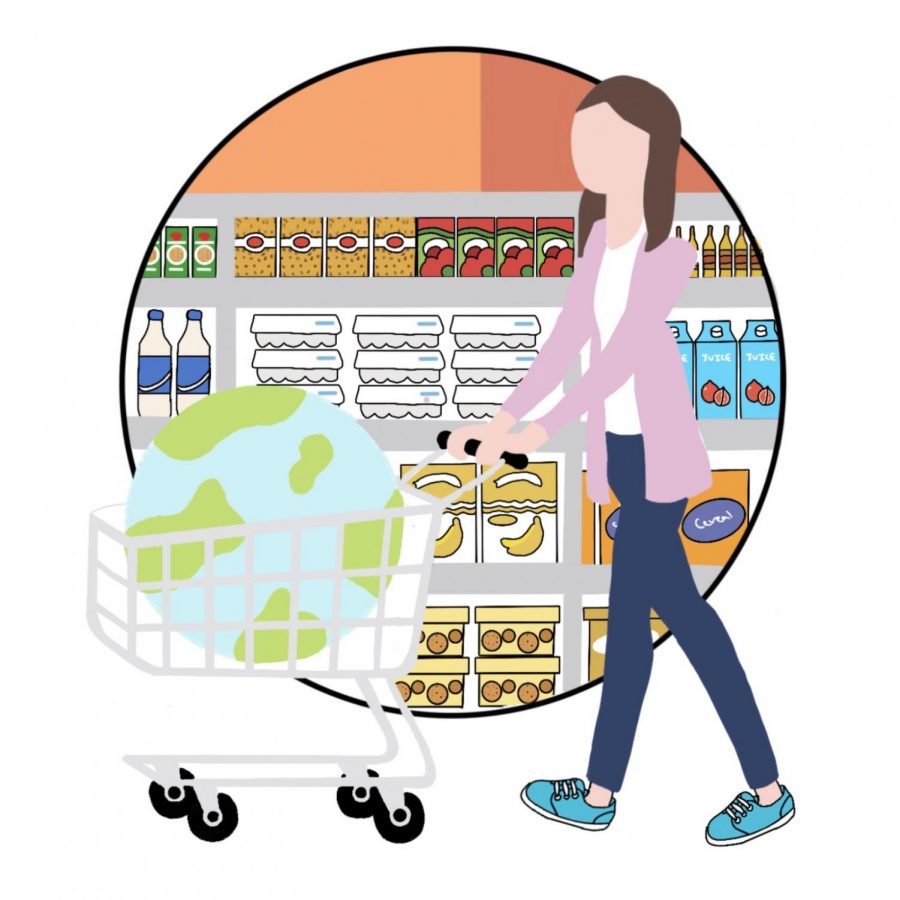Consumer shopping should be more eco-friendly
October 3, 2021
These days, when someone walks through their local grocery store, they may notice that the majority of the products on the shelves are not made of recyclable materials. The few products that are sustainable are often more expensive. According to a New York Times article titled “Eco Meets the Economy,” while there has been an increase in the awareness of climate change, the growth rate of the green industry is slowing down. In a Harvard Business Review survey, “65 percent said they want to buy purpose-driven brands that advocate sustainability, yet only about 26 percent actually do so.” Consumers and companies alike need to take action to close the 39 percent gap by addressing why sustainable products are not widely purchased.
One factor stopping consumers from purchasing sustainable products may be the additional cost compared to traditional goods. According to Kearney, an American management consulting firm, green products are nearly 75 to 85 percent more expensive than conventional products. Some people cannot afford the extra cost of buying green.
To solve this, the government should intervene and subsidize sustainable products to encourage manufacturers to produce more. As a result, the price for customers will be lower. The government should also offer incentives such as rebates to help increase interest in sustainable products. A study conducted by RetailMeNot found that three in five consumers would be motivated to purchase a green product if cost savings were involved.
Another way to encourage consumers to choose sustainable products more often is to call out their benefits properly. While shopping, when consumers see the price tag on a sustainable product they instinctively think that it is simply more expensive than the normal product. By labeling sustainable products with their benefits clearly, consumers will understand the justification behind the higher price and the products will look more appealing.
One way to shop sustainably is going to a local farmer’s market instead of shopping at a larger grocery chain. Choosing reusable products instead of ones that are single-use can help eliminate extra waste. These steps would be more eco-friendly since they promote sustainability.
Our planet and its resources have become extremely stressed by our consumption patterns, and we need to pay attention as we only have one planet with finite resources. Although buying sustainably may seem like a small step, aiming to practice its values every time we find ourselves in a grocery store or online retailer can make a big difference.



